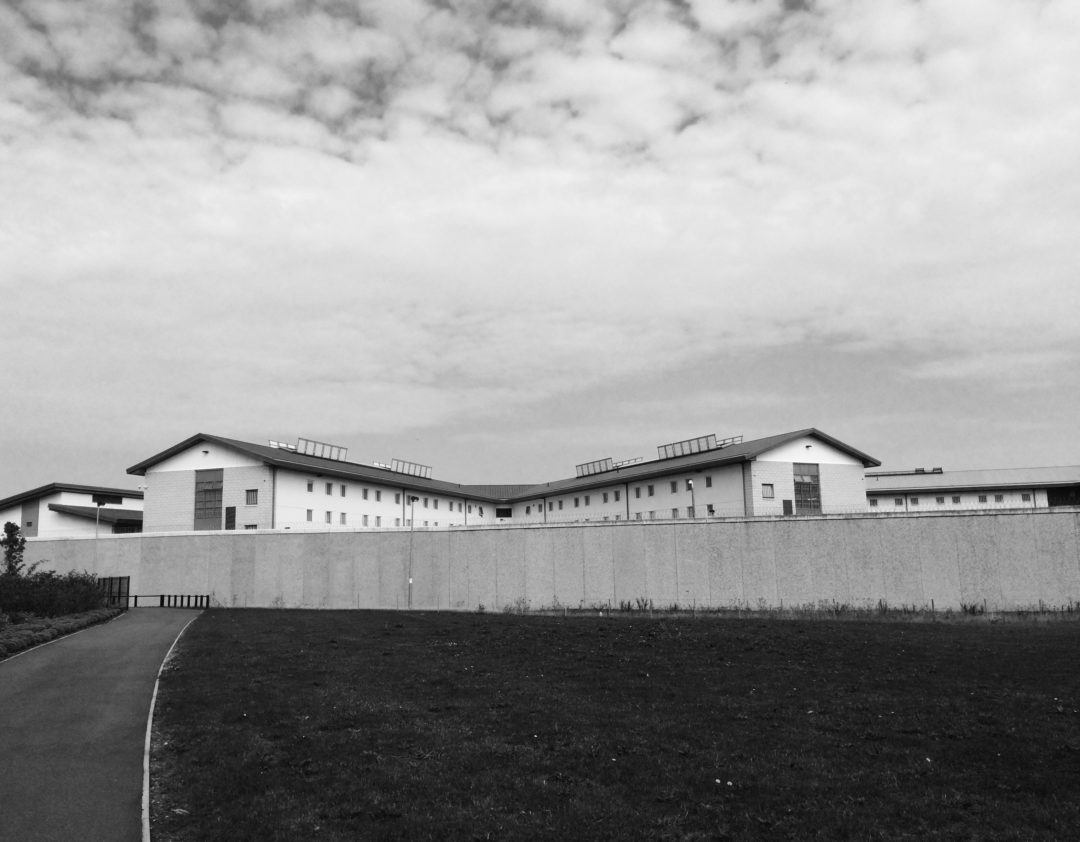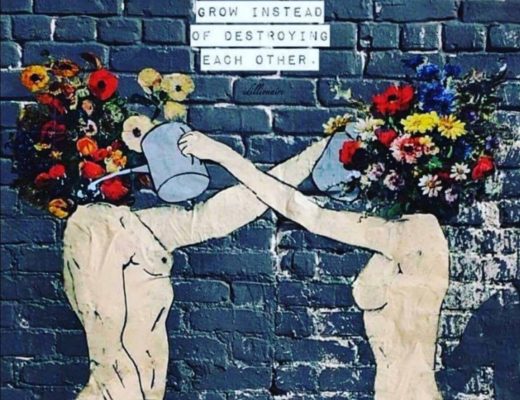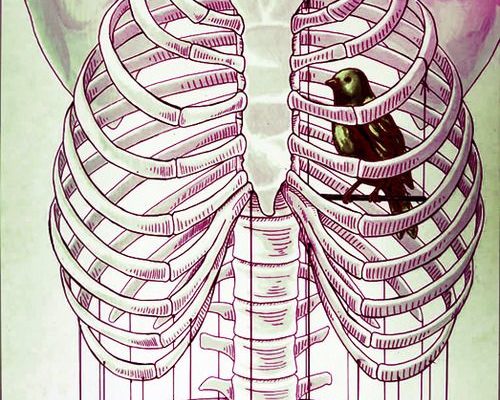This blog was originally hosted at Empty Cages Design.org as part of a series on Overcoming Burnout from 2016-2017. It has now been turned into a book that is available at: https://solidarityapothecary.org/overcomingburnout/
In this blog, I want to write about something I’ve been researching a lot recently called vicarious trauma, because I feel it is super relevant to social struggles. For most of us, we attempt to intervene in situations, acute and chronic, that are stressful and traumatic, depressing and debilitating. From visiting prisons and detention centres to investigating and exposing factory farms, listening to stories of abuse and rape, defending ourselves against violent hunt supporters to addressing fascist street violence. We both see and experience a lot of messed up shit. How does this stuff affect us long term? And why are we not talking about it?
In my reading, I came across a home-study module in vicarious trauma by an organisation called the Headington Institute who work with humanitarian workers worldwide. They describe vicarious trauma (VT) as, “the process of change that happens because you care about other people that have been hurt, and feel committed or responsible to help them. Over time this process can lead to changes in your psychological, physical and spiritual well-being.” [1]
A lot of trauma-related texts refer to one-off traumatic incidents. Increasingly, trauma conversation and writing acknowledges the effects of long term and complex trauma, which overlaps with the effect of all this gnarly sounding stuff on us over time. It shines a light on the potential cumulative consequences of bringing other people’s grief, fear, anger, and despair into our own awareness and experience over a longer period of time.
So how does vicarious trauma affect you and other people? What are the signs?
For this section, I’ve directly copied from the manual (which you can download for free online). I’ve put my own comments in these brackets [].
Physical and physiological signs
- Hyperarousal symptoms (e.g. nightmares, difficulty concentrating, being easily startled, sleep difficulties)
- Repeated thoughts or images regarding traumatic events, especially when you are trying not to think about it
- Feeling numb
- Feeling unable to tolerate strong emotions
- Increased sensitivity to violence
- Cynicism
- Generalised despair and hopelessness, and loss of idealism
- Guilt regarding your own survival and/or pleasure
- Anger
- Disgust
- Fear
Changes in Worldview and Frame of Reference
- Changes in spirituality (e.g. changes in beliefs regarding meaning, purpose, causality, connection, hope, and faith). This often takes the form of questioning prior beliefs and the meaning and purpose in life. In turn, this can be connected to a sense of loss of purpose, hopelessness, and cynicism. [Perhaps the grumpy older anarchists we all complain about are actually just vicariously traumatised?! For me this section also flags up how our political worldviews and beliefs may change over time too in response to the ongoing trauma we witness].
- Changes in identity (e.g. changes in the way you practice or think about important identities as a professional, friend, or family member). You could, for example, find that most of your time and energy is spent in your professional role because you feel disconnected from or uncomfortable in your other roles or identities. [Substitute professional for activist/anarchist/organiser/whatever label and you can see how uncomfortable it can become to engage in different roles].
- Changes in beliefs related to major psychological needs (e.g. beliefs regarding safety, control, trust, esteem, and intimacy). For example, changes in how vulnerable you believe you, and others that you care about, are to harm. In turn, these beliefs can influence your thoughts (e.g. worrying about safety issues, mistrust of strangers) and actions (e.g. being more protective of your children).
Behaviour and relationship signs
[This section basically describes my relationships over the last decade – sorry exes]
- Difficulty setting boundaries and separating work from personal life
- Feeling like you never have time or energy for yourself
- Feeling disconnected from loved ones, even when communicating with them
- Increased conflict in relationships
- General social withdrawal
- Acting out/exhibiting the “silencing response” – finding yourself unable to pay attention to other’s distressing stories because they seem overwhelming and incomprehensible, and directing people to talk about less distressing material
- Decreased interest in activities that used to bring pleasure, enjoyment, or relaxation
- Irritable, intolerant, agitated, impatient, needy, and/or moody
- Increased dependencies or addictions involving nicotine, alcohol, food, sex, shopping, internet, and/or other substances
- Sexual difficulties
- Impulsivity
Other than being absolutely miserable, vicarious trauma also greatly impacts our work. We may make bad decisions, commit to too much, put other people at risk, be unable to fulfil commitments, be trapped in a burn out cycle and then need unplanned time off, blame others and struggle to collaborate or be ‘wet tea towels’ in our groups because of our own cynicism, depression or lack of motivation.
The Headington Institute training module flags up all kinds of risk factors including personality and coping styles, personal history, current life circumstances, social support, work styles, the situation and cultural context of what you are doing and with whom. So using myself as an example, you see this confluence of factors: an avoidant emotional coping style, stoic workaholic personality, a lifetime of hyper-responsibility and caring for others and trying to work and organise while dealing with chronic stress in other areas of my life (e.g. supporting my friends in prison, a precarious income and an overwhelming number of bereavements in recent years). You take any of these risk factors away and you can see how the risk of vicarious trauma may be reduced (for example all of the above are pretty well buffered by the huge support network I’ve gained through my involvement in various social struggles).
The situational contexts highlighted as being high risk include: working directly with people in need, hearing/witnessing distressing stories, scenes, and events, being in positions of responsibility without adequate support and resources, people reacting and interacting in abusive ways and inadequate rest inbetween ‘assignments’. I don’t know about you reading this, but for me, this pretty much describes most frontline grassroots struggles.
Therefore, in my opinion, we have to take vicarious trauma seriously.
Individually coping with and transforming vicarious trauma
The guide I read suggests the key ways of coping with and transforming vicarious trauma are awareness, balance, and connection. Coping may involve escaping (time off, books, movies etc.), resting, and playing (doing fun things, physical activity etc.). Transforming these feelings may require identifying ways to nurture a sense of meaning and hope. For me this means going to regular gatherings where I can be inspired by other people, watching old-school movies about successful acts of rebellion and lastly, even just having cheesy inspiring postcards near my desk can help me stay connected to why I’m doing this work.
They also recommend mindfulness (cure for everything right apparently?), mourning our losses and marking transitions (yes, this also means celebrating small victories when we have them) as well as taking more time to reflect. Investing time in ourselves so we grow is a big one too, for example learning a new skill, studying, learning a martial art etc.
Being aware of your own risk factors as well as your own responses and signs is super important too. (There is a neat guide in the handbook). And finally, even though it is hard, trying somehow to find a bit of balance. Even if it is just between less demanding and more challenging work. Connecting with other people, having strong relationships and trying to cultivate a sense of joy, wonder, purpose, hope and meaning in our lives may also keep our hearts beating.
Collective ways of preventing and addressing vicarious trauma
Like all of my blogs, while I question what I can do individually, I know that this work is our collective responsibility. It is up to us to design organisations and collectives with infrastructure that can support us cope with traumatic stuff and sustain us long term.
The training module gives a list of recommendations which are not all easily applicable to more grassroots groups, however I think we should still look to these with awareness and attempts to put some of these factors into practice: adequate salaries and time off, adequate orientations, training, supervision, safety, access to counselling support and medical care, family support (e.g. childcare), working and connecting with each other (e.g. working in teams), peer support networks, voices in decision making, regular check-ins, setting a sustainable pace and valuing people.
Translated into grassroots models this may look like:
- Adequate expenses policies/financial support when appropriate to support people to participate (or even paid work/organiser subs when appropriate)
- Regular time off organising
- Solid introductions to how groups work/how to do things/support for new people
- Training e.g. mentoring, workshops, courses, reading groups, gatherings and skillshares (especially around vicarious trauma and burnout prevention)
- Support and mentoring from others
- Commitment to creating safer spaces (I know that it is a minefield)
- Accessible counselling
- Medical and health support
- Collective models of care for childcare, elder care, supporting people with chronic illnesses etc. (and respite for carers)
- Creating face-to-face time together to work together
- Working collectively especially when shit gets distressing (so we all feel more supported)
- Peer support networks (formal and informal)
- Ensuring appropriate decision making in groups so people feel able to share their feelings, opinions and ideas
- Autonomy – that folk feel control and agency over their own work and tasks
- Regular check-ins
- A culture where everyone calls each other out/flags up when the pace is unsustainable or potentially harming each other
- Valuing people might involve: challenging multiple and intersecting forms of oppression in groups, supporting people that have experienced abuse or violence, squashing machismo, having support for folks experiencing repression, supporting people that have burnt out etc. Basically not treating each other like we are disposable.
There are probably a million other options.
Ultimately, we are not well paid ‘aid workers’, humanitarians or social workers with a supervision structure. The suffering we witness and experience is not offset by a monthly salary or career development, an eventual pension or the option to take time out/change careers. This frontline of state violence is our fucking lives. Like I mentioned in my ‘when class is a struggle’ blog, this is not a game or a lifestyle choice.
If we admit that this is what we are dealing with – first hand and vicarious trauma – on an unending basis, then I ask of us:
- What collective models of support can we create or build upon that can support us to survive and navigate this trauma?
Even though safety is an illusion, and we cannot escape from structural forces of violence and oppression, this question will not stay in the past tense for long…
- How can we do our best to heal from the trauma we have experienced so that we don’t lose more of our comrades and loved ones to burnout, illness or premature death?
I went to a workshop last year on ‘People’s Science’, where a close friend of mine, Rafter Sass Ferguson from Liberation Ecology, described People’s Science as a culture of experimentation and critical thinking with a call to arms to appropriate the resources of contemporary science and integrate them into our movement [2].
Therefore, I want to start working with folks to explore:
- How can we appropriate useful resources from the fields of trauma therapy?
- How can we better claim useful tools for ourselves, groups, and movements while dismantling oppressive and capitalist models of healthcare and psychotherapy?
- How can we access and use this knowledge to reclaim our own health and recover from trauma while continuing to address the multiple roots of its main causes?
References
1. https://headington-institute.org/topic-areas/125/trauma/246/vicarious-trauma
2. http://liberationecology.org





No Comments